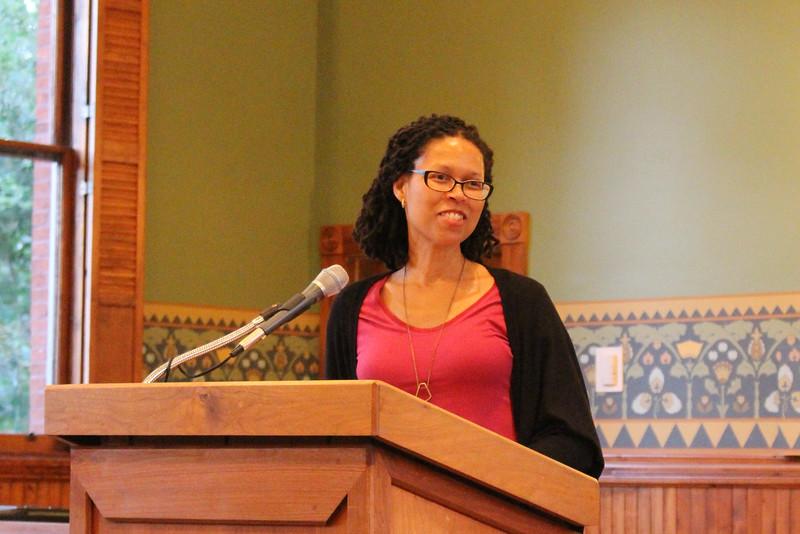Poet Evie Shockley
September 18, 2014
“First thing, I’m going to paint my toothbrush red,” was the first line of poetry Evie Shockley, guest poet at the University, opened her show with on Sept. 16.
With several published poetry collections already on shelves, Shockley made a name for herself many years ago, which comes as no surprise due to her humorous and solemn poems about real life events and experiences. Her works include “a half-red sea” and “the new black” published in 2006 and 2011, respectively. She read various poems, ranging from older to newer, to her captivated audience in Bucknell Hall.
The Nashville-born native said that “everything” is her inspiration. “I really mean other art, other poetry, the people I come into contact—I take the world in and try to make sense of it by writing poetry,” Shockley said.
When asked what her favorite poem from her collections was, the award-winning poet hesitated.
“It’s hard!” she said. “It’s like choosing between your kids. People always say the last poem they wrote is their favorite, but for me, I can’t single a poem out.”
Her poem “duck duck redux” holds a special place in her heart.
“It was inspired by a family moment—the birth of my nieces. It’s a poem that does a good job at making the past and the present come alive,” Shockley said.
Shockley’s poem “never after” incorporated fairytale characters into modern day, shaping the tale into an entertaining ride with the opening line being a quote from Harryette Mullen: “was she enchanted, or drugged?” In the section titled “the fare-well letters,” common phrases are disproportioned, but in a satirical way. “You are like puddy in my hands” (“dear ace bandage”), “The status quo never looked so good” (“dear opaque policy”), and “I’m shaken, but not stirred” (“dear quaalude residue”) are a few examples from the section.
“It’s been a pleasure having her on campus. She is both a dynamic and kind poet,” Stadler Fellow Chet’la Sebree, who introduced Shockley at the poet reading, said.
“Read as much poetry from all periods that you can,” Shockley said. “Including poems you don’t think you’ll like. Never pass up a poem if you can help it. They’ll come to you when you’re doing this and that. Poems are not promised. You may never get that poem again.”






















